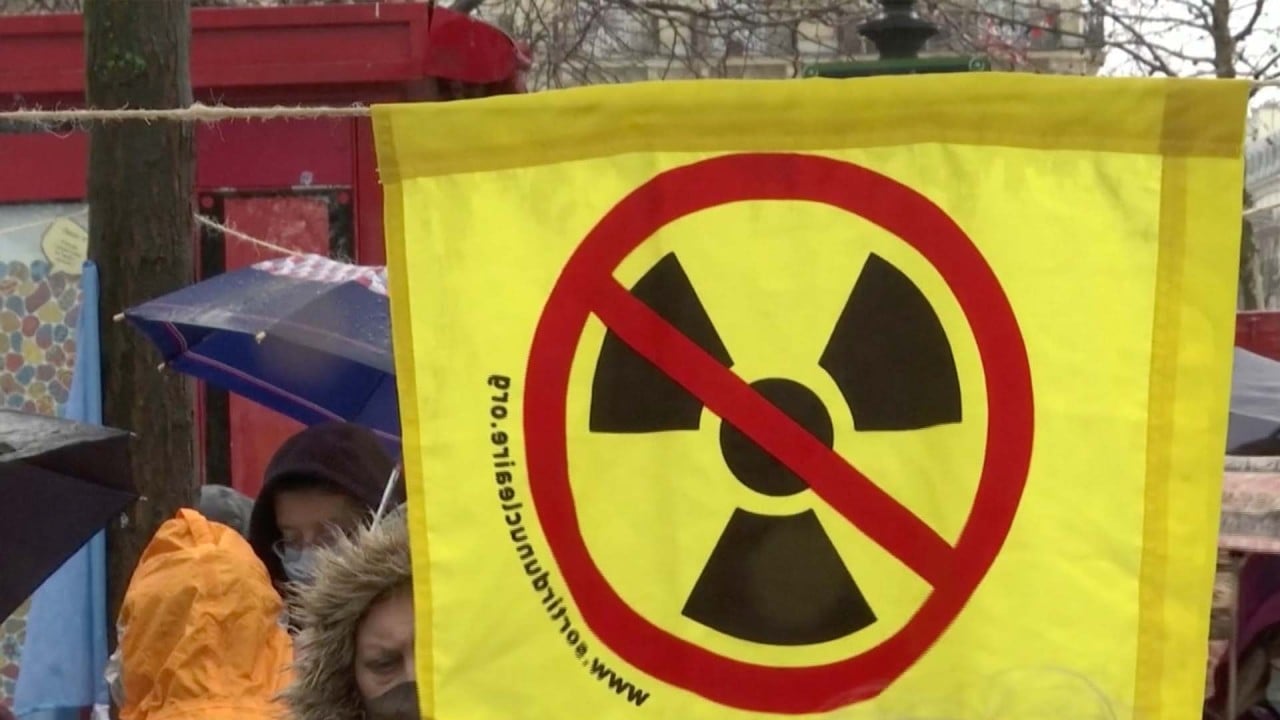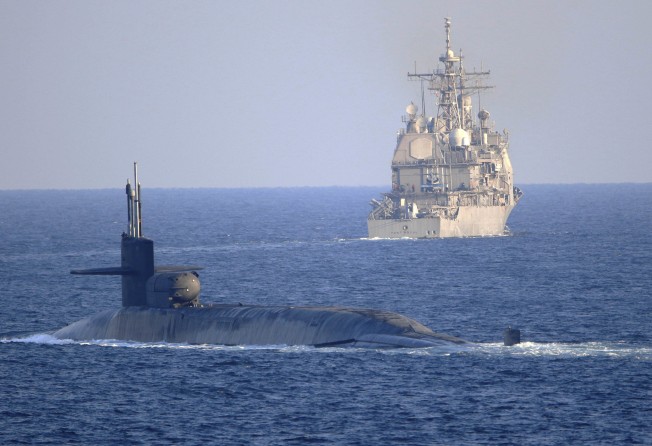
03:55
US, China, Russia, Britain and France pledge to only use nuclear weapons for defence

The nuclear submarine project between Australia, the United States and Britain should not begin until all International Atomic Energy Agency members agree, China’s foreign ministry said on Tuesday.
Foreign ministry spokesman Zhao Lijian said that at China’s request, the IAEA had for the third time decided to establish a special formal agenda to discuss issues around the Aukus group’s nuclear submarine cooperation regarding the transfer, safeguarding and supervision of nuclear materials, which could affect the Nuclear Non-Proliferation Treaty (NPT).
“China has repeatedly stressed that the cooperation between the United States, Britain and Australia on nuclear submarines poses a serious nuclear proliferation risk, affects the international nuclear non-proliferation system, intensifies the arms race and undermines regional peace and stability,” Zhao said in Beijing.
He said that because the matter had important implications for the international nuclear non-proliferation system and concerned the interests of all IAEA member states, it should be discussed and decided jointly by all member states. In March, the IAEA reported having 175 member states.
“The US, Britain and Australia should effectively fulfil their nuclear non-proliferation obligations [and] support instead of obstruct the above-mentioned intergovernmental discussion process. Until a consensus is reached among all parties, they should not start the nuclear submarine cooperation project,” he said.
Zhao added that the IAEA’s repeated decision to include the topic on its agenda showed the “serious concerns” the international community held about this issue.
In September, the three Western nations announced Australia would acquire a nuclear submarine fleet from the US and Britain as part of the trilateral Aukus alliance, a security pact to counter China’s growing military power in the region.
The programme means Australia could become the first non-nuclear weapon state to field a nuclear-powered submarine, potentially creating a loophole in the IAEA inspection system.
Although all three nations emphasised that Australia would not acquire nuclear weapons and that they would uphold their commitment to global non-proliferation standards, it still led to proliferation concerns.
Many arms control experts said the deal could set a damaging precedent for the sharing of nuclear-powered submarines that were obviously for military purposes.
Australia’s new submarines reportedly will be powered by on-board reactors fuelled with highly enriched uranium (HEU), which can also be used for nuclear weapons. And future proliferators could use nuclear reactor programmes as a cover for the development of nuclear weapons, citing this precedent.
Previously, the US has shared nuclear submarine propulsion technology only with Britain, another nuclear-weapon state, during Cold War efforts against the former Soviet Union.
China reacted strongly at the announcement of the Aukus nuclear submarine initiative, condemning it as damaging regional peace and stability and international non-proliferation efforts, and suggesting it intensified the arms race.
The Aukus submarine deal also resulted in tension in Australia’s relationship with France, whose US$66 billion diesel-electric submarine contract in 2016 was subsequently cancelled. Paris recalled its ambassadors to the US and Australia in protest.